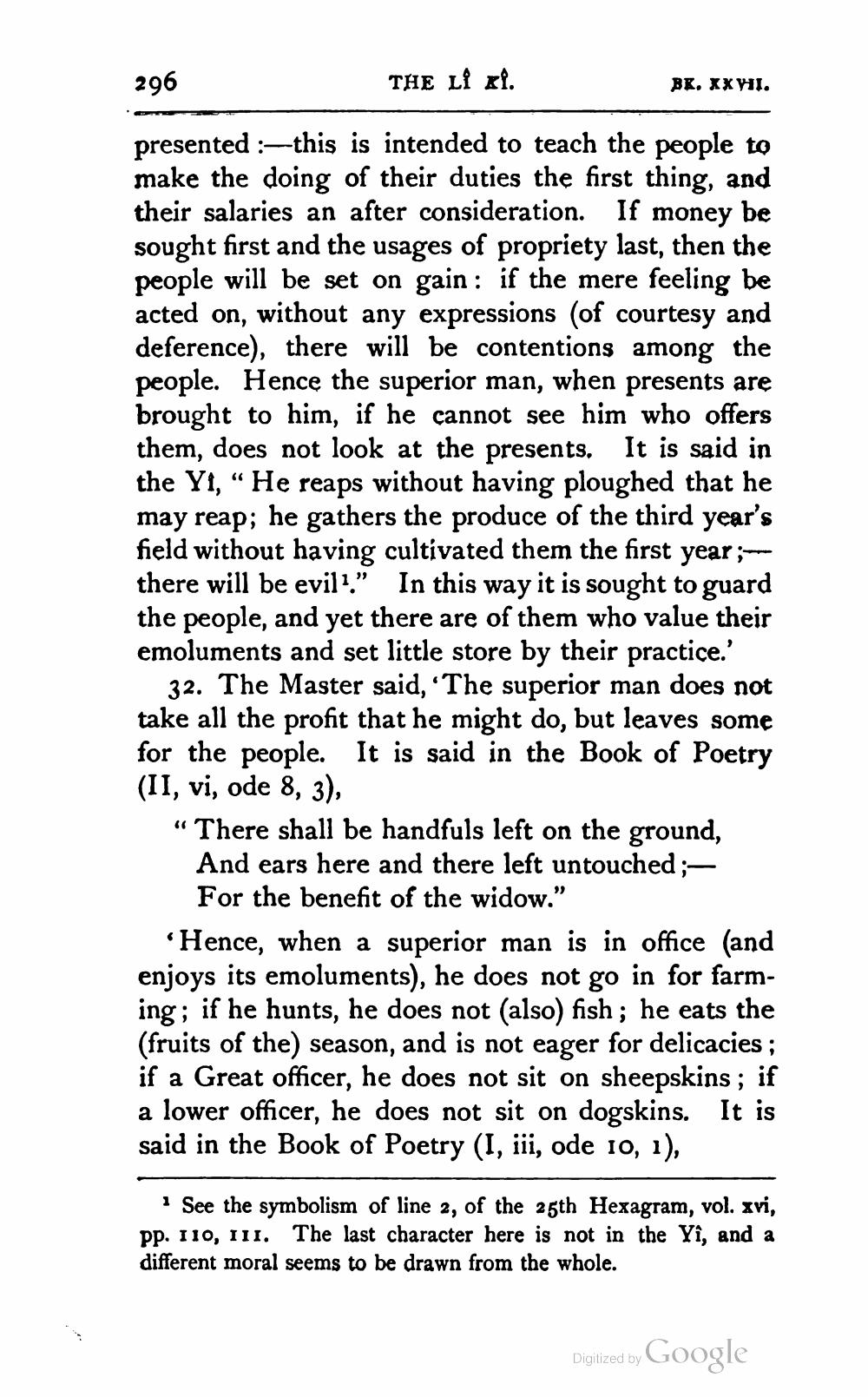________________
296
THE LÎ xi.
BR. XXVI.
presented :-this is intended to teach the people to make the doing of their duties the first thing, and their salaries an after consideration. If money be sought first and the usages of propriety last, then the people will be set on gain: if the mere feeling be acted on, without any expressions (of courtesy and deference), there will be contentions among the people. Hence the superior man, when presents are brought to him, if he cannot see him who offers them, does not look at the presents. It is said in the Y1, “He reaps without having ploughed that he may reap; he gathers the produce of the third year's field without having cultivated them the first year;there will be evil?.” In this way it is sought to guard the people, and yet there are of them who value their emoluments and set little store by their practice.'
32. The Master said, 'The superior man does not take all the profit that he might do, but leaves some for the people. It is said in the Book of Poetry (II, vi, ode 8, 3), “There shall be handfuls left on the ground,
And ears here and there left untouched;
For the benefit of the widow." 'Hence, when a superior man is in office (and enjoys its emoluments), he does not go in for farming; if he hunts, he does not (also) fish; he eats the (fruits of the) season, and is not eager for delicacies ; if a Great officer, he does not sit on sheepskins; if a lower officer, he does not sit on dogskins. It is said in the Book of Poetry (I, iii, ode 10, 1),
? See the symbolism of line 2, of the 25th Hexagram, vol. xvi, pp. 110, 111. The last character here is not in the Yi, and a different moral seems to be drawn from the whole.
Digitized by Google




